
Dear readers,
Last week began with the kick-off event for a series of information evenings on the Baltic Sea Protection Action Plan, or "APOS" for short. This is intended to help realise the goals that the Schleswig-Holstein Greens had negotiated into the coalition agreement with the CDU in the form of a "Baltic Sea National Park".
However, after intense protests, the national park failed due to the vote of the CDU/CSU party base. In order to fulfil the treaty, a compromise was agreed, the APOS. Similar to the national park project, the APOS has also been criticised - not least by water sports enthusiasts. This is because the question is being raised as to whether the project really serves primarily to protect the Baltic Sea, as its name promises.
Essentially, the aim is to place 12.5 per cent of Schleswig-Holstein's Baltic Sea (39,000 hectares) under strict protection, thereby fulfilling an obligation agreed at EU level to designate protected areas in the amount of a certain quota - which would be much more difficult to enforce and establish on land.
This is now to be achieved through 7.94 per cent of new marine nature conservation areas and improved protection status for 4.57 per cent of existing Natura 2000 areas. In addition, "active measures to improve the biodiversity of the Baltic Sea", "reduction of nutrient inputs", "clean-up of contaminated sites and waste" are to be added.
In addition to the new protected areas, an onshore organisation is now also being set up, similar to a national park administration. In the presentation, this is simply called "Effective conservation management and education".
This "Baltic Sea Marine Protection Centre" - staff have already been recruited and a building is currently being sought - will not only be responsible for looking after the protected areas, but will also become a central contact point for Baltic Sea protection, which will develop educational and information services and advise and involve "local stakeholders" (such as local authorities, tourism, business and water sports).
A Scientific Advisory Board is also to be set up by appointing 16 scientists from the fields of "Marine Ecology", "Marine Munitions", "Geology", "Climate", "Tourism", "Economics", "Agricultural Sciences", "Agricultural Economics" and "Social Sciences". Its constituent meeting will take place on 12 June under the chairmanship of Prime Minister Daniel Günter.
All in all, an impressive Shore crew and a strong voice for the replacement of a politically failed project.
Water sports enthusiasts now officially have the opportunity to comment. It is to be hoped that this will be utilised. However, insiders doubt whether this will have any influence on the upcoming processes.
Hans Köster, who has been responsible for environmental issues on the board of the Schleswig-Holstein Sailing Association for several years and is therefore well versed in the subject, has accompanied the entire consultation process on the national park and was also at the launch event for the APOS in Eckernförde.
According to Köster, who generally welcomes measures to protect the Baltic Sea, the lack of opportunity to have a say has so far been deplorable from a sailing perspective. "When politicians argue that because the Baltic Sea is in a bad state, those who sail on it should do something for it - then we should also be allowed to have a say in what needs to be done and ask whether the planned measures will actually be of any use," says Köster.
As it stands, navigation bans and no-anchoring zones are already in place, although, according to the presentation of the action plan, a working group on navigation regulations is still to discuss this, and the offer by water sports enthusiasts to agree on voluntary agreements has not even been taken up by the decision-makers.
Köster, who works professionally as a lawyer in Flensburg, asks about the proportionality of planned traffic regulations. This is a prerequisite for their legality, but can only be assumed if an evaluation of what the measures achieve takes place in future. "Whether the restrictions actually serve the intended purpose must therefore be monitored on a case-by-case basis," says Köster.
In a Interview given to YACHT by Schleswig-Holstein's Environment Minister Tobias Goldschmidt at the start of the APOS presentation eventshe evaded the question of evaluating individual measures. The general development of the protected areas should be analysed.
According to Köster, the focus of the project - at least in the presentation - is particularly noteworthy. For example, only one paragraph is devoted to the recovery of old munitions, although this is the greatest threat alongside agricultural nutrient inputs.
On the subject of black water disposal in marinas, the plan only provides for awareness-raising and a deficit analysis, but not the promotion of a disposal infrastructure.
Hans Köster is right. The architects of the APOS were clearly not impressed by the criticism of the national park, which ultimately led to its failure. The NDR headlined "Baltic Sea National Park to become Baltic Sea Protection Action Plan". And that's exactly how you can see it on closer inspection.
While effective measures for the urgently needed protection of the Baltic Sea, such as the reduction of nutrient discharges and the clearance of old munitions, are being tackled rather half-heartedly, the APOS is an expensive apparatus that is apparently to be given completely different tasks in addition to the management of the protected areas.
Restrictions on use and navigation regulations for sailors, whose positive effects on the overall state of the Baltic Sea (the actual purpose of the project) are at least questionable, have already been prepared without the involvement of those affected. There has been no lack of offers to participate constructively in the political project, for example through voluntary agreements on no-anchoring zones. In my view, a great opportunity has been squandered here.
The Baltic Sea is in a bad way. What will help it is obvious. Instead of tackling it, a lot of money is being spent on measures whose proportionality is questionable. And anyone who takes a closer look at what the APOS is creating cannot shake off the suspicion that an instrument is being created that will not only benefit the planned protected areas.
After the kick-off event, the Environment Minister spoke of a good compromise that had been found with the APOS. The question arises as to whether the benefits for the protection of the Baltic Sea were actually at the forefront of the process. In any case, this would benefit from the involvement of those affected. Because more could be achieved together.
Lasse Johannsen
Deputy Editor-in-Chief of YACHT
Recommended reading from the editorial team

New podcast episode
Across the Müggelsee at 70 km/h in an ice sailing boat - with YACHT editor Fabian Boerger
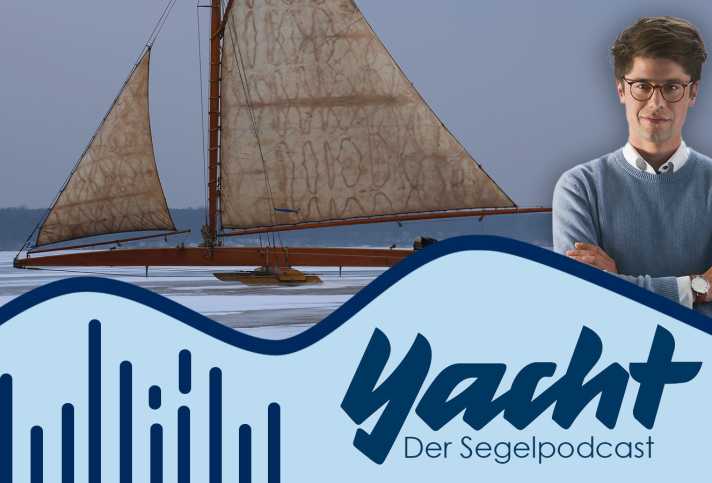
In the 59th episode of YACHT - the sailing podcast, Timm Kruse welcomes editor Fabian Boerger, who reports on ice sailing on the Müggelsee.
Sailing drones
Efficient surveillance on the Baltic Sea - soon with weapons?
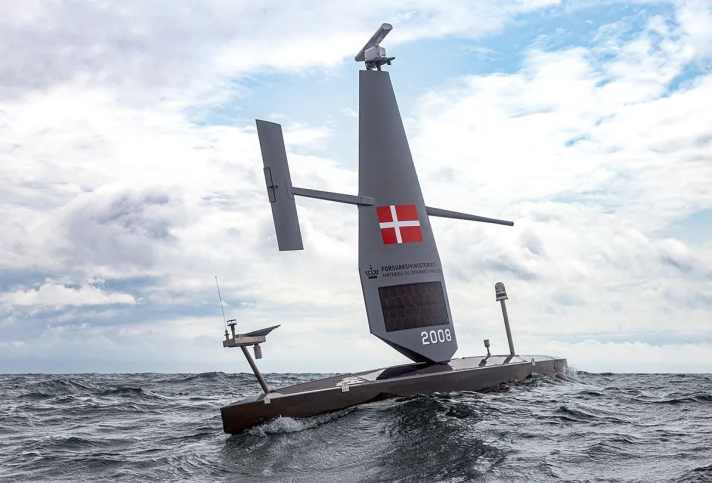
Result of the six-month test deployment of sailing drones in the Baltic Sea: Danish navy was able to identify 170,000 ships. Weaponisation as an option?
Knierim Yachtbau
New small series with a classic touch
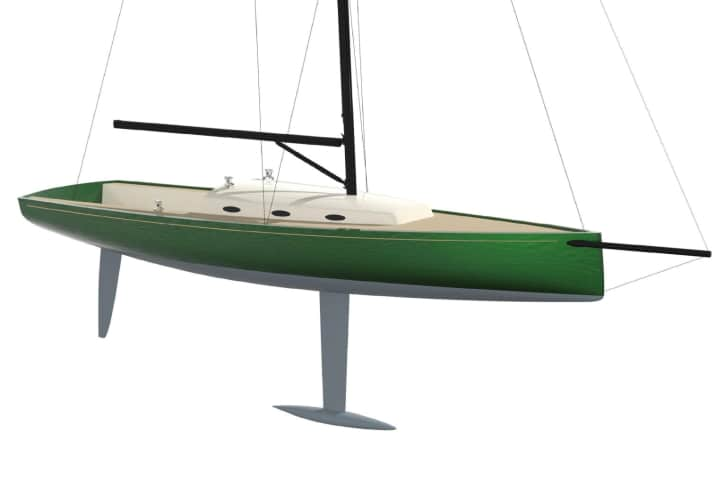
Knierim Yachtbau is currently building the prototype of a BM 31, which represents the start of a series of customised coastal cruisers.
Garmin quatix 8 Pro
Smartwatch for sailors, now with satellite SOS
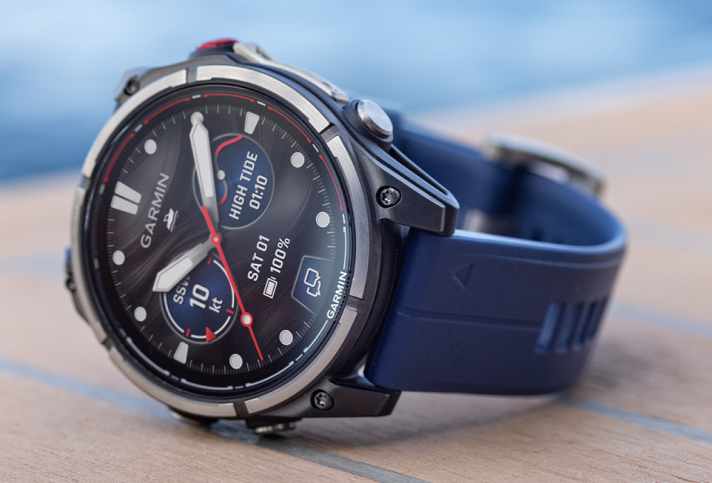
The quatix 8 Pro from Garmin combines smartwatch and satellite communication: inReach technology enables SOS emergency calls up to 80 kilometres off the coast - without a smartphone.
Peter von Seestermühe
The 90th birthday
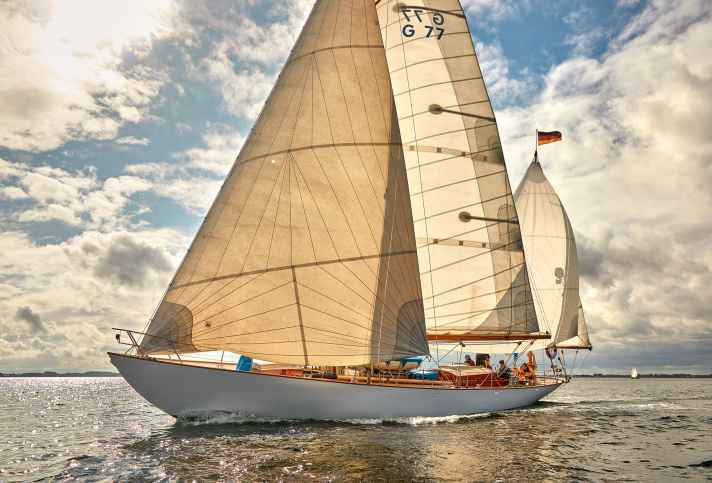
The steel yawl "Peter von Seestermühe" has been at home on the high seas since 1936. Owner Christoph von Reibnitz is currently preparing the classic yacht for her 90th sailing season, in which he will sail to the Caribbean for the 15th time with the Atlantic Rally for Cruisers.
Müggelsee
Historic ice yacht sails for the first time after complete restoration
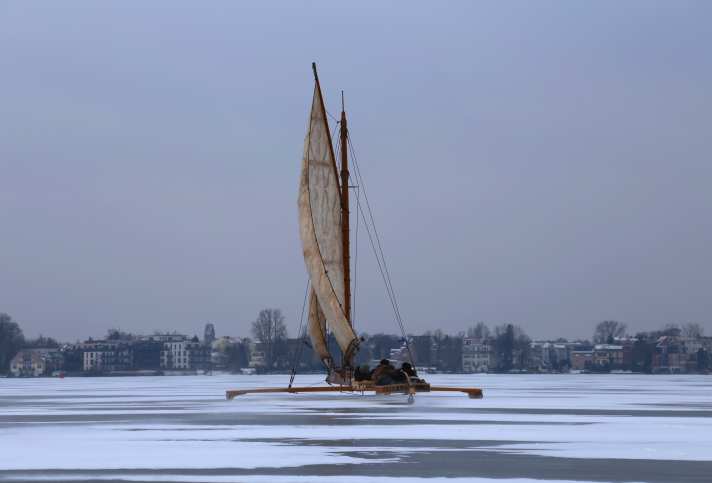
A Berlin family has brought the historic ice yacht "Papagena" back onto the ice. Completely restored, the 15-metre sled now sails across the Müggelsee.
Baltic Sea
Easterly winds cause historically low water levels - and an opportunity
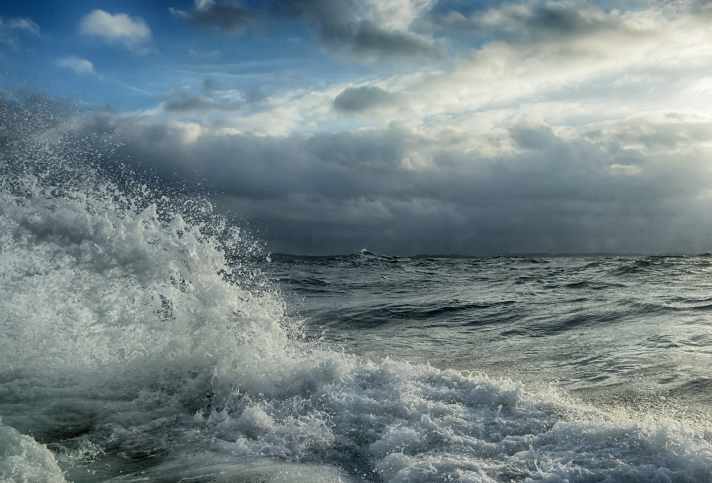
Long-lasting easterly winds are causing historically low water levels in the Baltic Sea. Scientists see this as a good opportunity to improve water quality.
Lake Constance
Tourist tax judgement sends out a signal - to the chagrin of sailors
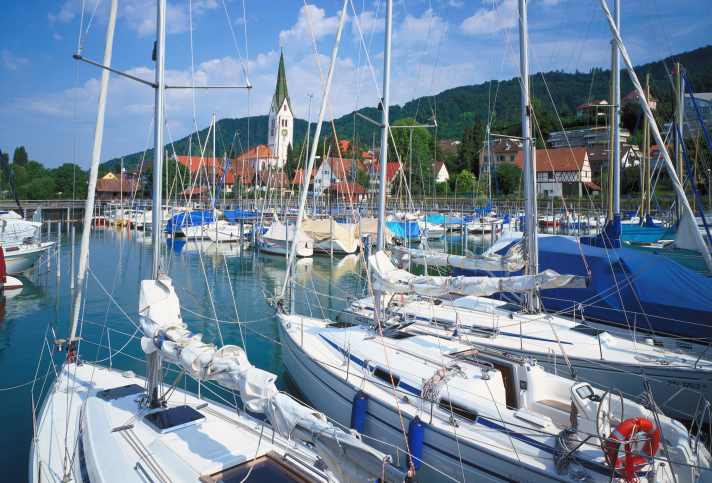
Kressbronn has won the legal dispute over the visitor's tax for boaters. This has prompted other municipalities on Lake Constance to want to collect the tax too.
Superyacht ranking
The 200 largest sailing yachts in the world
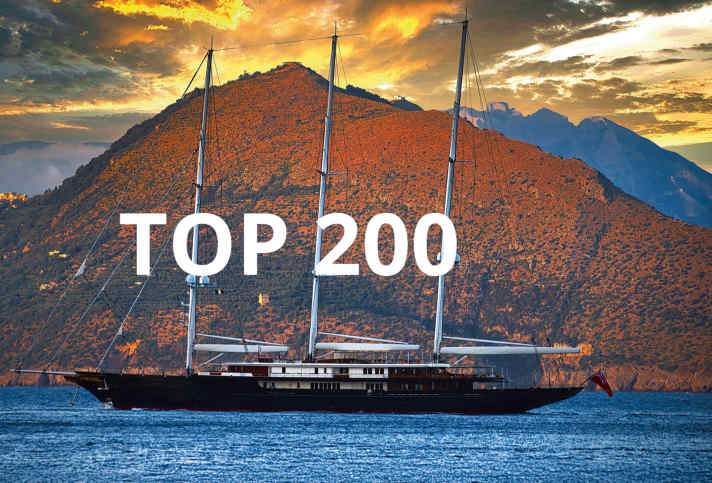
Our ranking shows the largest sailing yachts, from the 143 metre long "Sailing Yacht A" to the almost 50 metre long "Thalia". We provide data and designers, as well as brief portraits of the top 100. We also reveal which yachts are for sale - and at what price.
Circumnavigation
Pacific rendezvous: "Westward solo is brave!"
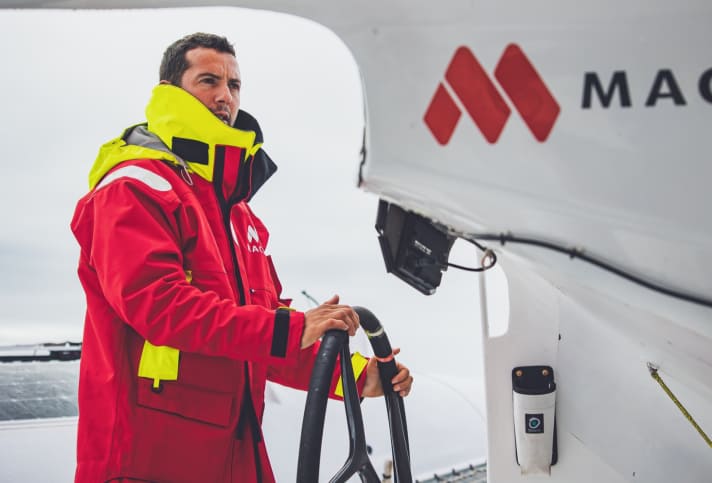
Sailing round the world "the wrong way round": Guirec Soudée sails around the world from east to west against the wind. The adventure and Ultim skipper is chasing a record from 2004.
Newsletter: YACHT-Woche
Der Yacht Newsletter fasst die wichtigsten Themen der Woche zusammen, alle Top-Themen kompakt und direkt in deiner Mail-Box. Einfach anmelden:

